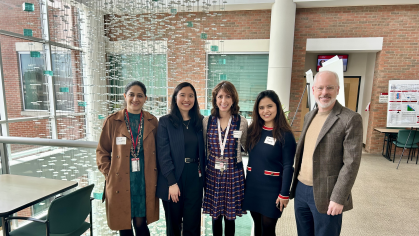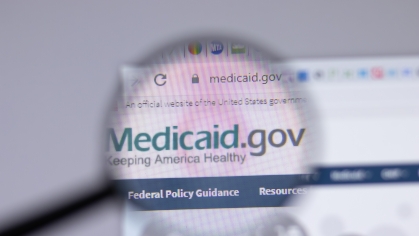Disability Pride Month, held annually every July, is a time to honor the history, achievements, experiences, and struggles of the disability community.
The month of July was chosen back in 1990 as a part of the celebration of the passage of the Americans with Disabilities Act (ADA), a federal civil rights law that prohibits discrimination against people with disabilities in everyday activities. The law protects people at their jobs, on public transportation, and in public and commercial spaces. It is hard to overstate the significance of the ADA on daily lives of people with disabilities, and for this reason, its enactment is celebrated along with disability achievements and accomplishments annually.
Thanks to the ADA, people with disabilities have the right to assert their choice of where and how they want to live. In 1999, in Olmstead v. L.C., the US Supreme Court decided that that segregation of persons with disabilities (such as in an institution) constituted unlawful discrimination.
People with disabilities have been—and are still—often overlooked despite their talents and skills because of the assumptions people make about them and their capacity to live rich and fulfilling lives or achieve professional success. For example, Lois Curtis, the lead plaintiff in Olmstead v. L.C., went on to achieve great success as an artist and had her work displayed in the White House.
Lois Curtis is just one example of someone who went on to do great things once given the opportunity to make decisions about her own life – including where she wanted to live. This ability to make choices helps mitigate the barriers and discrimination often faced by people with disabilities.
It is the reason why the Community Living Education Project (CLEP) was founded at Rutgers in 1991. A core belief of CLEP is that all individuals must have the opportunity to choose where and how they want to live. CLEP supports people with disabilities and their families as they explore the many possibilities of community living.
Colleen McKay Wharton, director of CLEP, shares more about the barriers people with disabilities face, and how the CLEP’s impact is cultivating a community with equitable access to the healthiest quality of life for this population.
What are some of the public health-related challenges for people with disabilities?
It is certainly very well documented – internationally, nationally and locally – that when compared to people without disabilities, those with disabilities experience significant disparities in health outcomes, from heart disease, kidney disease, cancer, diabetes, and others. Lack of early screening and limited access to healthcare can both contribute to higher mortality rates.
This was seen during the pandemic when those with intellectual and developmental disabilities – many of whom live in congregate living environments – had higher rates of infection, higher mortality rates, and more challenges accessing healthcare.
In fact, we now have data related to the impact of long covid. The CDC released data from the 2022 Behavioral Risk Factor Surveillance Survey showing that 10.8% of fully or partially disabled adults reported long COVID symptoms versus 6.6% of adults who did not report a disability.
What other factors influence health disparities among those living with disabilities?
Social determinants of health, the circumstances or conditions we all live in, can have very positive or very negative impacts on health. By these I mean things like access to healthcare, access to education, stable housing, food security, poverty, employment opportunities and social supports and community connections.
For those living with disabilities, these social determinants of health can significantly contribute to poorer health outcomes.
How does CLEP support people with disabilities?
As a person-centered organization, CLEP encourages the ‘community connections.’ By this I mean that we help individuals with intellectual and developmental disabilities live their life of choice. Supporting them by learning what is most important to them and for them. What activities do they enjoy? Who do they want to spend time with? What type of work or volunteer activity do they want to participate in? These connections are critical for any person’s well-being.
People want to share their gifts and talents in their own community, and those with intellectual disabilities are no different. CLEP works to help those with disabilities live a person-centered, community life where they can choose the life they want to lead just like anyone else.
The theme for this year's Disability Pride Month is We Want A Life Like Yours. And why shouldn’t they have that?



